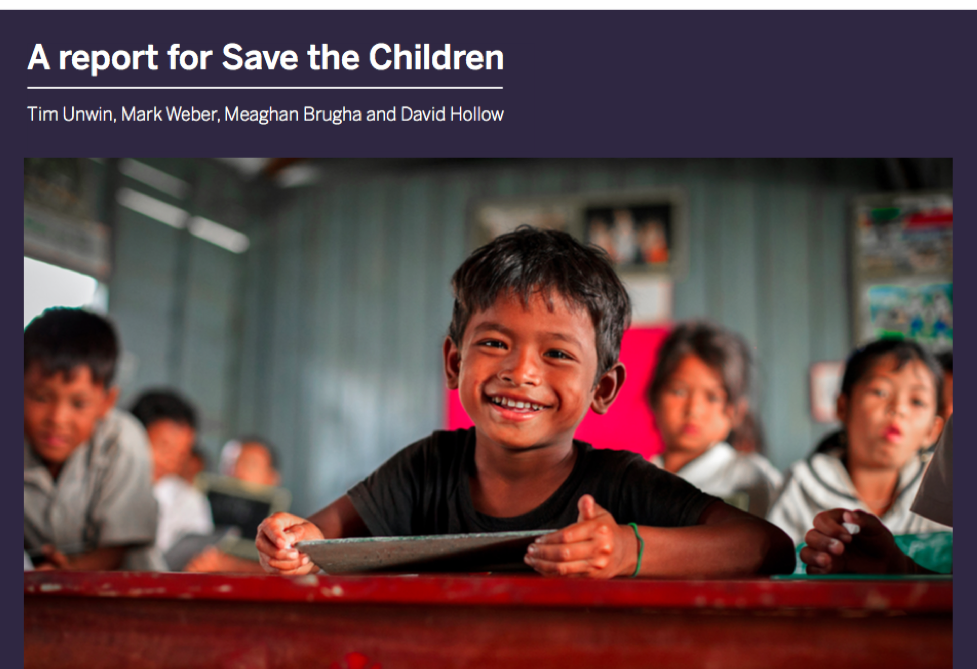
The report can be downloaded from the link at the bottom of this page.
This study was developed in partnership between Jigsaw, Tim Unwin and Mark Weber. It is a future-focused study, considering what the use of ICT in basic education in deprived contexts may look like in 2020 and 2025. The report draws on research evidence to ground predictions from the literature, the authors' experiences of ICT use in education initiatives, interviews with practitioners and academics, a workshop, and consultations with Save the Children staff.
The report identifies important current trends in basic education and ICTs, and considers the likelihood that they will continue through to 2020 and 2025. It then explores scenarios for possible ICT use in delivering basic education to deprived children, supported by six case studies from Colombia, Grenada and the Solomon Islands, Jordan, Pakistan, Somalia, and the UK. It then engages with the risks associated with increased use of ICTs in basic education. The report closes by highlighting the overarching themes and focuses on the implications for Save the Children's advocacy and programmes. The report notes that the following predictions are probable for the future of ICT for learning:
- There will be considerable further divergence in the use of ICTs in classrooms, both between different countries, and also within them;
- Changes in school systems will encourage greater use of technology throughout education;
- The role of teachers will evolve so that they will work in very different ways in the technologically mediated school systems of the next decade;
- There will be a different combination of digital content and devices than that which is found at the present;
- ICTs will play an increasingly important role in assessment, and the data produced will enable more refined approaches to individualised learning; and
- The role of parents and communities in helping children gain learning experiences will increase.
In low-income and marginalised areas, a further five observations seem likely:
- There will be an increase in the number of innovative ICT solutions available and it will therefore be more difficult to identify what works best where;
- More people will be sharing devices to gain access to information through the Internet;
- Digital multi-purpose hubs will still be used to provide access to connectivity and learning in the most marginal areas;
- Caching online content for use offline will be an important means for people to access information in peripheral areas; and
- There will be an increase in the amount of non-formal and informal learning among people of all ages, especially in low income and peripheral contexts.
This report can also be accessed through the Save the Children website and has been featured by one of the authors, Tim Unwin on his blog.

